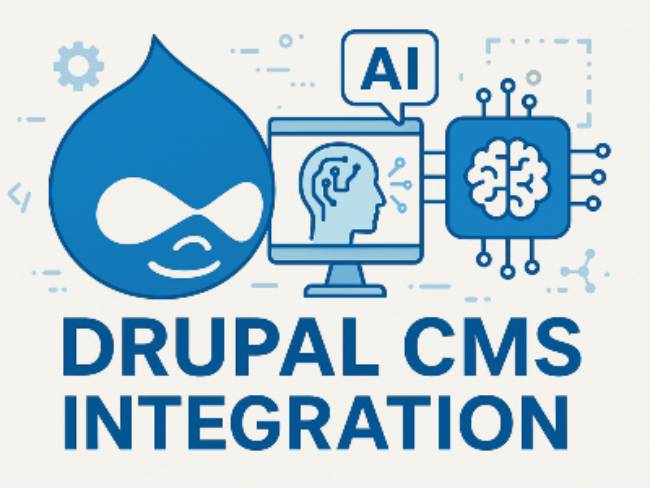
What is Drupal AI Integration?
Drupal provides a robust set of APIs and plugins that enable developers to build custom applications using various programming languages. When it comes to AI integration, Drupal provides a range of tools and services that allow developers to leverage the power of machine learning (ML) and deep learning (DL) algorithms.
Read more: Unlocking the Power of Artificial Intelligence in Drupal: A Comprehensive GuideWhy Integrate AI with Drupal?
There are several reasons why integrating AI with Drupal is becoming increasingly popular:
- Increased accuracy : AI-powered applications can improve the accuracy of predictive models, reducing errors and improving decision-making.
- Enhanced user experience : AI-driven chatbots and virtual assistants can provide personalized support to users, improving their overall experience.
- Improved data analysis : AI algorithms can analyze vast amounts of data quickly and efficiently, providing valuable insights for businesses.
Step-by-Step Guide to Integrating AI with Drupal:
- Choose the right API : Select a suitable API from Drupal’s repository that provides AI-related services, such as Natural Language Processing (NLP), Computer Vision, or Predictive Analytics.
- Create an AI pipeline : Set up an AI pipeline using tools like TensorFlow, PyTorch, or scikit-learn to integrate with your Drupal application.
- Integrate with Drupal plugins : Use Drupal’s plugin architecture to build custom applications that leverage AI services and data.
- Develop custom AI models : Create custom machine learning models using Python, R, or other languages of choice.
Advanced Topics:
- Using NLP for text analysis : Leverage NLP capabilities in Drupal to analyze user input, extract relevant information, and provide personalized responses.
- Implementing Computer Vision : Use computer vision techniques in Drupal to analyze images, detect patterns, and recognize objects.
- Deploying predictive models : Deploy predictive models in Drupal to forecast future events, predict customer behavior, or optimize resource allocation.
Real-World Examples:
- Chatbot integration : Build a chatbot using AI-powered services like Dialogflow (formerly known as API.ai) and deploy it in your Drupal application.
- Predictive analytics : Use predictive analytics tools like Tableau or Power BI to analyze customer data and provide insights for businesses.
Conclusion:
Integrating AI with Drupal offers a wide range of benefits, from enhancing user experiences to improving decision-making. By following this guide, you can unlock the power of artificial intelligence in your Drupal application and take your organization to the next level.
Getting Started:
To start integrating AI with Drupal, visit the official Drupal API repository and explore the available APIs and plugins. You can also reach out to the community forum or support team for guidance and resources.
I hope this sample blog post provides a solid foundation for exploring the world of AI integration in Drupal!